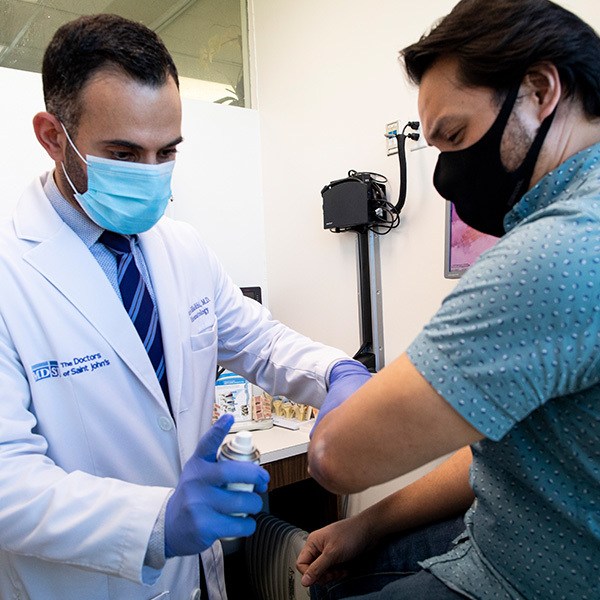Systemic Lupus Erythematous

Overview
What is Systemic Lupus Erythematous?
Systemic Lupus Erythematous (SLE) is one form of lupus, an autoimmune disease in which the immune system attacks its own tissues. SLE can affect the joints, skin, lungs, brain, kidneys and blood vessels, causing pervasive inflammation and tissue damage.
SLE can affect people of all ages, but women between the age 16 and 55 years are at greatest risk of developing the condition. Women are also affected far more than men. In the United States, the prevalence of SLE is higher among Asians, African Americans, African Caribbeans, and Hispanic Americans compared with Caucasians.
Symptoms
Symptoms of Systemic Lupus Erythematous
In some people, periods during which symptoms appear—called flares—can be interspersed with remission of symptoms. Others may experience flares more consistently throughout their life.
Symptoms of SLE include:
Diagnosis
Diagnosis of Systemic Lupus Erythematous
Rheumatologists are experts in diagnosing SLE and use a combination of physical examination, symptom assessment, lab tests and X-rays. Diagnosis in the early stages of SLE may be difficult since the symptoms can present as other conditions.
Treatments
Treatment of Systemic Lupus Erythematous
Lifestyle modifications and medical care can help control it and significantly improve quality of life.
Treatment of SLE begins with immunosuppressive medications that prevent hyperactivity of the immune system. Hydroxychloroquine and corticosteroids (e.g., prednisone) may also be used to treat SLE. The FDA approved belimumab in 2011, the first new drug for SLE in more than 50 years.

Trials
Clinical Trials
The rheumatologists at Saint John’s Physician Partners have been integrally involved in the development of medications that treat inflammatory arthritis conditions for decades. They were involved in the clinical trials that led to the approval at the Food and Drug Administration (FDA) for medications that treat rheumatoid arthritis (RA), psoriatic arthritis (PsA), ankylosing spondylitis (SpA), osteoarthritis, and other bone and skin conditions like osteoporosis and psoriasis advanced therapies, some of which are biologic treatments.

Specialists
Systemic Lupus Erythematous Specialists
Orrin Troum, M.D. and Amro Elbalkhi, M.D. provide consultation, diagnosis, and treatment for rheumatic diseases including inflammatory arthritis (rheumatoid arthritis, psoriatic arthritis, ankylosing spondylitis), scleroderma, myositis, gout, lupus, osteoarthritis, and osteoporosis. The Medical Doctors of Saint Johns strive to provide world class care and a personalized treatment plan for all patients and their families.


